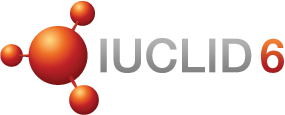Report generator
IUCLID 6 includes a Report Generator to extract IUCLID data and to present this data in a user-friendly report format such as PDF or RTF, or in machine-readable format such as CSV or XML. These reports are used in a variety of business processes by industry and assessing authorities. Reports are typically generated from single IUCLID 6 datasets and dossiers.
Many reports are ready to use and made available by default inside IUCLID 6, and can be generated using the Report Generator.
The Report Generator allows you to customise and manage your own report templates and to use these with the Report Generator to extract data from IUCLID’s datasets and dossiers. The IUCLID team can help you to create your own report templates, and provide the necessary technical and business support. Use the IUCLID functional mailbox to contact us with any such request.
Typically, we recommend the creation of customised report templates when:
- There is a set of structured IUCLID data which you repeatedly have to use in your business processes, such as study summary data, use information, or composition data.
- You want to regularly send IUCLID data in a readable format to other organisations.
- There is another IT system which you feed IUCLID data in to and which you wish to have ready in machine-readable format, such as XML or CSV.
There are basic instructions available to create customised reports together with a few examples:
- DocBook report template example (.ftl) including a test .i6z
- This is applicable for any Substance, Mixture, Category or Article entity and any related Working Context, although the example is more relevant for users generating from Substances or Mixtures;
- You can upload the supplied .ftls into the IUCLID Report Manager, see the screenshot here.
- XML report template example (.ftl), to be used with this IUCLID 6 dataset (.i6z)
When creating your own report templates, you can also upload your own stylesheet (.xsl) file into the Report Generator which adds extra formatting conditions to the .rtf output. Here are two stylesheets which you can use as a basis for creating your own stylesheets:
- Default IUCLID stylesheet (.xsl) used with the CSR report
- Two modified stylesheets (landscape and portrait in .xsl) which converts an RTF or PDF document into a landscape or portrait format accordingly, as well as permitting different text colours and table cell colours.
Sharing your report templates
If you wish to share the templates you have customised and potentially have these published on the IUCLID 6 website, please contact ECHA through the IUCLID functional mailbox.
Here is a short video on how the modular approach works. The video gives an overview of the steps to include, as an example, the module for environmental hazard assessment and the study information on aquatic algae in a main report template.
The modules are currently available in GitHub (go to the OECD Customisation forum for information on the governance of the modules and where to access them)
The available modules have been mapped to the current Chemical Safety Report (REACH) to help you understand the layout and presentation of the different studies and summaries. The mapping is ordered by CSR chapter, and each one can be expanded and collapsed. You can find the mapping here.
An example report template of how to use the common modules can be found here. The example can be generated from a Substance or Mixture entity, and has a different output depending on which entity you generate from and what data you have available in the IUCLID you use to generate the report, see the table of contents below. To upload the reports, see the above section on 'Uploading your own reports'. The main report template is named 'main_report_template_modular.ftl'
Report templates
You can download the latest report templates from the IUCLID Reports page. The report templates available below are compatible with IUCLID 6.8. To see what has changed for the 6.8 release, see the release notes.
Training and webinars
ECHA and EFSA co-host Reporting Workshops, which includes presentations and material to help report builders.
- 2022 Workshop presentation slides can be downloaded here.
- 2023 Workshop presentation slides can be downloaded here.
- 2023 Workshop example FTLs can be downloaded here:
- Test materials report (to be used with IUCLID 6 v7.x onwards)
- Simple traversal approach example (to be used with IUCLID 6 v7.11 onwards)
- Simple HTML to Docx example (to be used with IUCLID 6 v7.10.1 onwards)
- New example FTLs have been started following the 2023 Workshop. The report can be generated in Docx or HTML and can be generated with IUCLID 6 v7.11 onwards. An example i6z for generation is available here. The FTLs illustrate further:
- Using the new traversal approach to extract and re-use IUCLID nodes and field values
- The majority of Report functions
- The prototype styling to be used for IUCLID reports
IUCLID YouTube channel:
Archives
You can download report templates that are compatible with IUCLID 6.6 from here.

